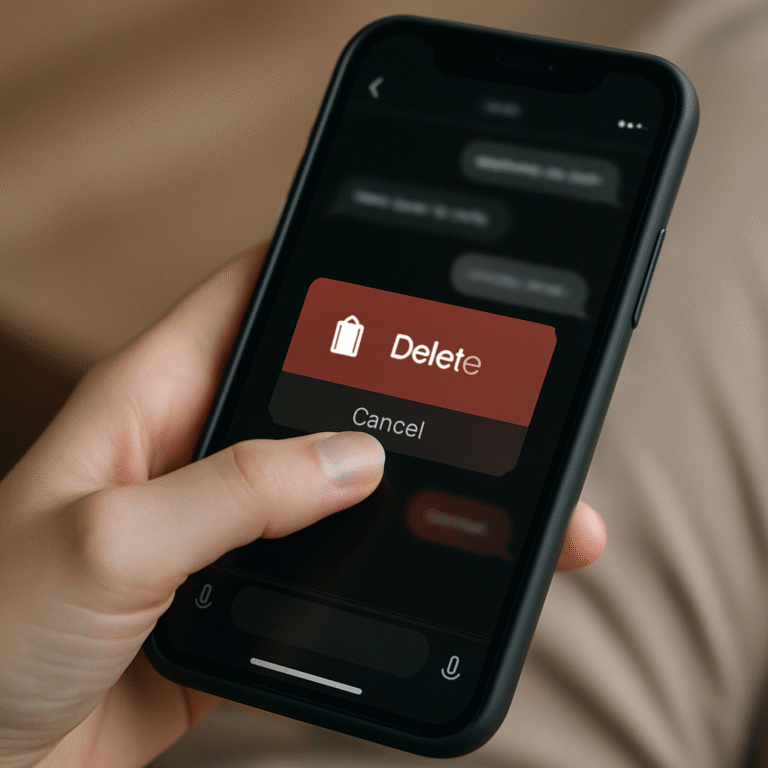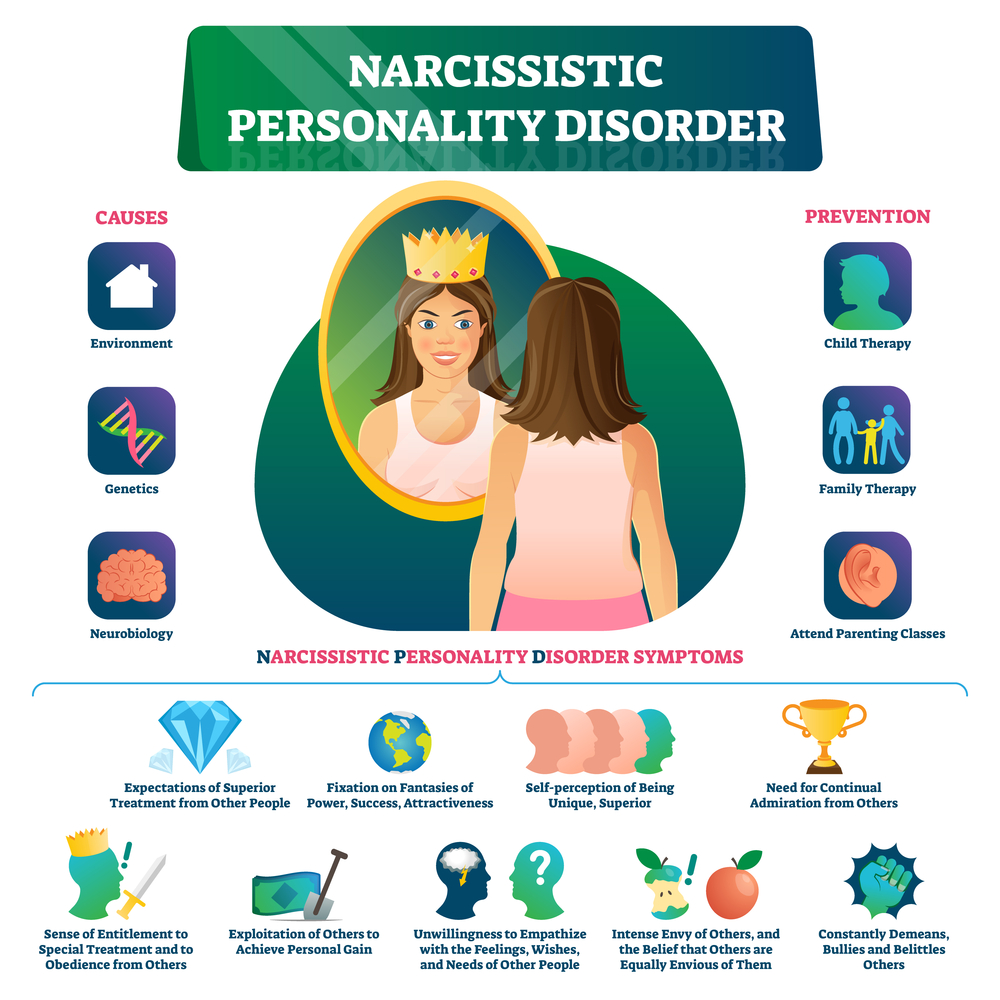5 Things You Should Never Do After Breaking Up With a Narcissist
 Breaking up with a narcissist is not just an emotional separation. It is a reclamation of your autonomy. Narcissistic relationships, full of pain and self-doubt, often leave their partners psychologically disoriented. Ending things may feel like escaping a storm, but there is also a lingering aftermath. Healing from a manipulative relationship requires both gentleness and […]
Breaking up with a narcissist is not just an emotional separation. It is a reclamation of your autonomy. Narcissistic relationships, full of pain and self-doubt, often leave their partners psychologically disoriented. Ending things may feel like escaping a storm, but there is also a lingering aftermath. Healing from a manipulative relationship requires both gentleness and […]Breaking up with a narcissist is not just an emotional separation. It is a reclamation of your autonomy. Narcissistic relationships, full of pain and self-doubt, often leave their partners psychologically disoriented. Ending things may feel like escaping a storm, but there is also a lingering aftermath.
Healing from a manipulative relationship requires both gentleness and firm boundaries. The path forward hinges not only on what you do but also on what you avoid. Prevent being drawn back into cycles of confusion by avoiding certain behaviors. Here are five things you should never do after breaking up with a narcissist.
The 5 "Never" rules at a glance
Once a breakup with a narcissist is final, it is essential to NEVER:
-
- Contact them after a breakup
- Peek at their social media
- Broadcast the drama online
- Self-isolate from friends
- Rush into a rebound relationship

1. Never break the no-contact
Narcissistic Personality Disorder (NPD) affects roughly 5% of the population, of which 50%-75% are men. According to licensed psychotherapist Alena Scigliano, "A narcissist is someone who has a very fragile sense of self and operates with a subconscious (but debilitating) fear of not being good enough."
Individuals with this disorder enhance their self-esteem by controlling others. This is known as weaponizing communication, where gaslighting, criticism, and even isolation from friends and family contribute to their power over their partner.
"Narcissists often thrive on maintaining control and will exploit any interaction as an opportunity to reassert their dominance or manipulate your emotions." (Campbell & Miller, 2011)
So, if control of communication gives a narcissist control, then stopping contact after a breakup takes it away. Realistically, cutting off communication with an ex is hard. But with a narcissist, even if you are tempted to send one more text for closure, contacting them is one of the most counterproductive things you can do.
A narcissist's reaction to your outreach can range from sudden affection, love-bombing, to calculated cruelty designed to pull you back or punish you for leaving the relationship. Their inconsistency is designed to keep you off balance. Every time you re-engage, you risk reopening old wounds.
Why no-contact matters
According to Dr. Sharie Stines, a "no-contact" period is a critical step in recovering from narcissistic abuse. This isn't about being punitive or selfish; it's about giving your nervous system the space to reset. Your brain has likely been conditioned to associate chaos with intimacy. Only by cutting off communication can you start to rebuild a sense of safety and emotional clarity. Every unanswered call or text isn't a missed opportunity; it's a moment of peace.
Practical steps
Here are a few practical suggestions that can help you regain control.
- Block (or delete) their phone numbers and social media accounts.
- Avoid mutual "check-ins" through friends. Let people know you're not open to updates.
If you have to interact, these phrases help you retain control of the conversation:
- I need you to stop.
- I have five minutes to discuss this (and stick to it).
- I am done with this conversation and leaving now.
Also, responding with "Okay" or "Hmm." The monosyllabic approach is known as the Grey Rock Method. It works because it robs the narcissist of your reaction.
Social media platforms have become an integral part of our daily lives. But, scrolling through an ex-partner's curated updates only prolongs the healing process. Facebook, WhatsApp, or Instagram provide narcissists with the perfect place to post calculated images. They can flaunt a new relationship to provoke you.
Recognize this for what it is - manipulation. Even neutral updates can trigger intrusive memories, rekindling the emotional roller coaster.
The psychological trap
As early as 2012, research done by Tara C. Marshall on Facebook posts showed that "social media surveillance" of ex-partners is linked to increased emotional distress, longing, and delayed recovery after a breakup. (Marshall, 2012)
For survivors of narcissistic abuse, the trauma bond is easily triggered and magnified. Once used to manipulate, this intense cycle of intense emotional attachment is reinforced by intermittent reward and punishment.
How to break the habit
- Remove or mute them across all platforms to eliminate temptation.
- Remind yourself that what you see online is a performance, not reality.
3. Never broadcast the drama online
Airing your grievances on social media will backfire. Sharing intimate details online can give them continued influence over your life, keeping you emotionally tethered to the relationship. Moreover, broadcasting personal pain rarely provides validation. Algorithms reward engagement, not empathy, and people's responses may be disappointing or even judgmental.
Additionally, true narcissists are highly sensitive to perceived criticism and may retaliate aggressively when their image is threatened (Miller et al., 2017). Public posts could provoke smear campaigns, legal threats, or further emotional attacks.
Instead, confide in trusted friends or a therapist who can offer support without judgment. As an alternative, try channeling your feelings into a new endeavor or a trip.
4. Don't self-isolate or "Tough It Out" alone
Isolation is a component of narcissistic control. It may be subtle, but manipulating you to leave your family or quit a job leaves you isolated. Narcissistic abuse also erodes your trust in others and yourself.
In the aftermath of a narcissistic relationship, retreating into solitude may feel safer, but prolonged isolation reinforces the false narrative that you're unworthy of love.
Peer-reviewed studies by Southwick & Charney published in 2012 consistently show that "social support is a key predictor of resilience and emotional recovery after trauma. Trusted connections remind you that you're not alone, counteracting the isolation and shame sown by narcissistic manipulation."
Healing doesn't mean rushing into a crowded social life. Instead, develop a strong support pod by slowly reconnecting with people who affirm your worth.
- Start small. Reach out to a safe friend or join a support group for survivors of narcissistic abuse.
- Consider therapy. Trauma-informed professionals can help untangle the psychological knots left behind.
- Re-engage. Restore a sense of identity and independence by rejoining communities or hobbies you enjoyed before the relationship.
5. Never rush into a rebound relationship
After leaving a narcissist, the desire to fill the emotional void can be overwhelming, and the prospect of a new partner can be appealing. But jumping into a new relationship, while a temporary distraction, rarely addresses wounds left by narcissistic abuse.
This is because narcissistic relationships often distort your understanding of healthy love. Without time to process and heal, you risk repeating old patterns or attracting another partner with similar traits (Freyd, 2021).
Choose healing over distraction by permitting yourself to be single. A period of intentional solitude allows you to reclaim your sense of self and enter future relationships from a place of wholeness and strength.
Quick-Reference Table — Golden Rules Post-Narcissist
| Don’t Do This | Why You Shouldn’t | What to Do Instead |
|---|---|---|
| Contact them after a breakup | Reopens emotional wounds and invites manipulation. | Commit to no-contact to protect your healing. |
| Peek at their social media | Triggers longing, jealousy, and delays emotional detachment. | Block or mute accounts and focus on self-care. |
| Broadcast the drama online | It may provoke retaliation, smear campaigns, or public embarrassment. | Share feelings privately with trusted support. |
| Self-isolate | Increases shame and reinforces the narcissist’s negative narrative. | Reconnect with safe friends, family, or support groups. |
| Rush into a rebound relationship | Risks repeating patterns and prevents deep healing. | Rebuild self-worth and healthy boundaries. |
Narcissist Break-Up Recovery Plan Generator
Feeling overwhelmed after a breakup with a narcissist? Describe your current challenge—whether it’s low self-esteem, trust issues, or lingering confusion—and this tool will craft a personalized, three-step recovery plan to help you rebuild confidence, set healthy boundaries, and find the right support. Give it a try below!
Expert Insight: Healing After Narcissistic Abuse
"After ending the relationship, you must slowly work back toward learning to trust yourself again after years of experiencing gaslighting. Set clear boundaries, unfollow or block them on social media, and commit to rebuilding your support system—surround yourself with people who affirm your worth. Ultimately, the core of healing is re-trusting your intuition and recognizing that your reality and emotions are valid."— Mike Dow, PsyD, PhD, Verywell Mind.
Survivor Snapshot
A recent story on Reddit (r/Breakups) related to one individual's difficulty and the consequences of ignoring the no-contact rule.
They anonymously retold how they checked their ex's Instagram every day for 3.5 months after the breakup. Every day, they took note of statistics, worrying about new interactions. Luckily, they eventually recognized their actions were self-sabotaging behavior that was slowing the healing process. After some self-isolation, they sought help from friends and a therapist.
FAQ
Is No-Contact really necessary?
Yes, no-contact is crucial because it breaks the cycle of manipulation and gives your nervous system space to heal.
How long should No-Contact last?
There is no set timeframe for no contact after a relationship. It should last as long as it takes to feel emotionally safe.
When children are involved, no contact isn't realistic. Low-contact is recommended, keeping interactions brief and businesslike.
Can a narcissist ever change?
Lasting change for a narcissist is rare, although anything is possible. Most often, they lack self-awareness and the ability to commit to treatment.
Why do I still miss them?
Missing a narcissist after a breakup is normal. Trauma bonds are powerful connections reinforced by cycles of love and devaluation. It takes time for your brain to unlearn these habits.
Resources & Next Steps
National Domestic Violence Hotlines:
- National Domestic Violence Hotline (U.S.) – https://www.thehotline.org
- RAINN (Rape, Abuse & Incest National Network) – https://www.rainn.org
Recommended Resources:
Yiz Epstein's The Narcissism Recovery Podcast focuses on healing from narcissistic abuse and overcoming trauma bonds.
Key Takeaways
- Breaking up with a narcissist is an act of courage.
- Stay away from social media.
- Take time to rediscover yourself and find self-worth.
- Respect yourself by stopping all contact.
- Reach out to friends, trauma support therapists, and social resources to build a support pod.
- Recovery isn't linear. There are good days and bad.


